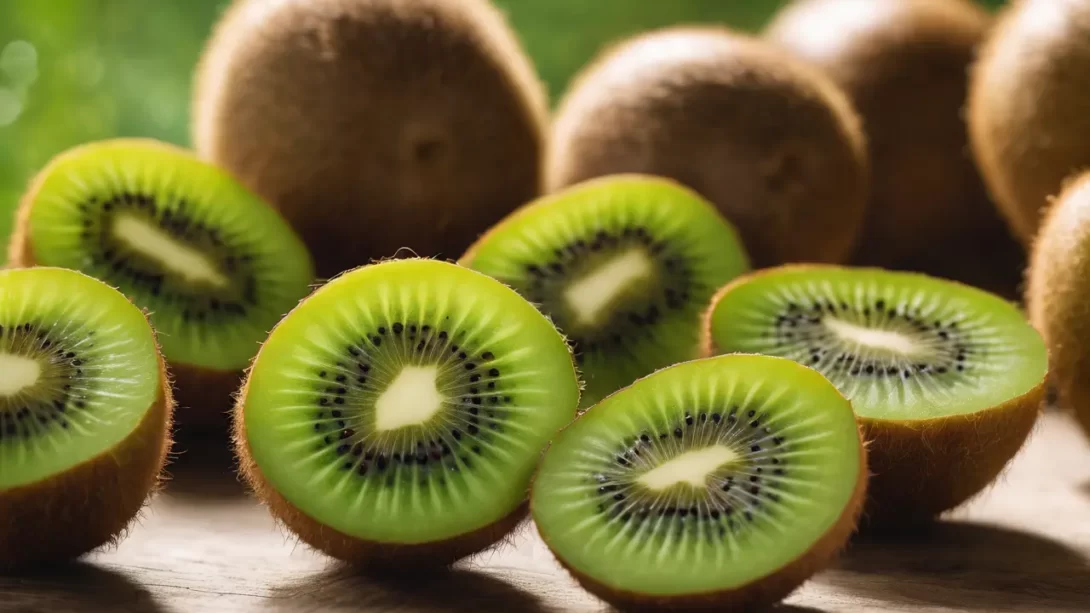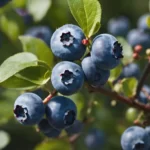Kiwis, with their bright green flesh and unique flavor, have become a favorite in fruit bowls worldwide. Renowned for their nutritional benefits, including high vitamin C content, kiwis are not just a tasty snack but a healthy one too. This article aims to guide you on the shelf life, proper storage, and signs of spoilage in kiwis, ensuring you can enjoy this delicious fruit at its best.
Kiwi Fruit
Kiwi fruit, primarily the green (Hayward) and gold varieties, are small fruits with a fuzzy brown exterior and vibrant, seedy interior. These fruits are not just visually appealing but packed with nutrients, offering a rich blend of vitamins, minerals, and dietary fiber. Typically, kiwi harvesting occurs in late fall through winter, influencing their availability and freshness in markets globally. The seasonality of kiwis can affect their taste and longevity, making understanding their shelf life even more important.
Shelf Life of Kiwis
The shelf life of kiwis can vary significantly depending on their ripeness and storage conditions. At room temperature, unripe kiwis can last for about one to two weeks. Once they ripen, however, their shelf life decreases, and they are best consumed within a few days. Refrigeration can extend the life of ripe kiwis, keeping them good for up to three to four weeks. It’s important to note that unripe kiwis can also be stored in the refrigerator, which slows down their ripening process, allowing for a longer shelf life.
In contrast, ripe kiwis are more delicate. Their softer texture and higher sugar content make them more susceptible to spoilage. The comparison between ripe and unripe kiwis in terms of shelf life is a crucial consideration when buying and storing these fruits.
Factors Influencing Kiwi Shelf Life
The longevity of kiwi fruit is influenced by several factors, starting from the moment they are harvested. Kiwis picked at the right time of maturity will have a better shelf life compared to those harvested either too early or too late. The ripeness of kiwis at the time of purchase is also crucial; unripe kiwis last longer than ripe ones but require time to reach the optimal stage for consumption.
Storage conditions play a pivotal role in determining the shelf life of kiwis. Factors such as humidity, temperature, and exposure to ethylene gas (produced by certain fruits and vegetables) can accelerate the ripening and spoilage process. For example, storing kiwis in a humid environment or close to ethylene-producing fruits like apples and bananas can lead to quicker ripening and potential spoilage.
Proper Storage Techniques for Kiwis
To maximize the shelf life of kiwis, proper storage is essential. Unripe kiwis should be kept at room temperature away from direct sunlight and ethylene-producing fruits until they ripen. This process can be hastened by placing kiwis in a paper bag with an apple or banana, which emit ethylene gas.
Once kiwis are ripe, they should be moved to the refrigerator. Refrigeration slows down the ripening process and preserves the fruit’s quality. It’s advisable to store kiwis in a plastic bag in the crisper drawer to maintain the right humidity level. This method can keep ripe kiwis fresh for several weeks.
For long-term storage, kiwis can be frozen. To freeze kiwis, peel and slice them, then place the slices on a baking sheet in the freezer. Once frozen, transfer the slices to a freezer-safe bag. Frozen kiwis are great for smoothies or as a refreshing snack, though their texture may change, becoming softer when thawed.
Signs of Spoilage in Kiwis
Identifying when a kiwi has gone bad is key to enjoying this fruit safely. Visual indicators of spoilage include mold growth or significant discoloration on the skin or flesh. The texture of the kiwi is also a telltale sign; if the fruit is excessively soft or mushy, it may be overripe or spoiled.
An off-odor is another clear sign of spoilage. A sour or fermented smell indicates that the kiwi is no longer good to eat. Similarly, any unusual or off-tasting flavors in the fruit suggest it’s time to discard it.
Maximizing Kiwi Enjoyment
Ripening kiwis at home is a simple process. If you’ve bought unripe kiwis and want to speed up their ripening, place them in a paper bag with an ethylene-producing fruit, like an apple or banana, at room temperature. The ethylene gas emitted by the fruits encourages ripening. Check daily for ripeness, which is indicated by a slight softness to the touch.
Kiwis are incredibly versatile in culinary applications. They can be eaten raw, sliced in fruit salads, blended into smoothies, or used as a tangy addition to desserts. Their vibrant green color and unique flavor also make them an excellent topping for yogurt and cereals. When slightly overripe, kiwis are perfect for purees or jams, as their increased sweetness enhances these preparations.
Conclusion
The shelf life of kiwis varies depending on their ripeness and storage conditions. By understanding these factors and employing proper storage techniques, you can extend the life of your kiwis and enjoy them at their peak. Remember to look out for signs of spoilage, such as mold, an off smell, or a mushy texture, to ensure you’re consuming them safely.
Kiwis are not only a delicious and nutritious addition to your diet but also a fruit that offers versatility in the kitchen. Whether you’re enjoying them fresh or as part of a recipe, kiwis can add a unique flavor and nutritional boost to your meals. Properly storing and ripening your kiwis will ensure you get the most out of every fruit, reducing waste and enhancing your culinary experience.




